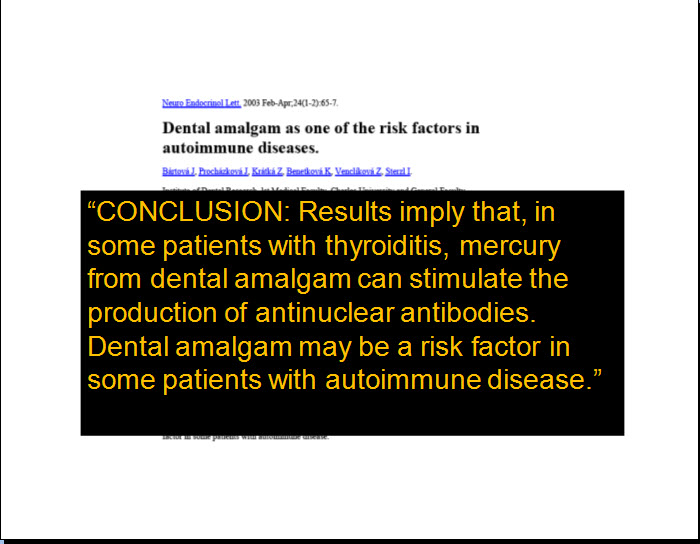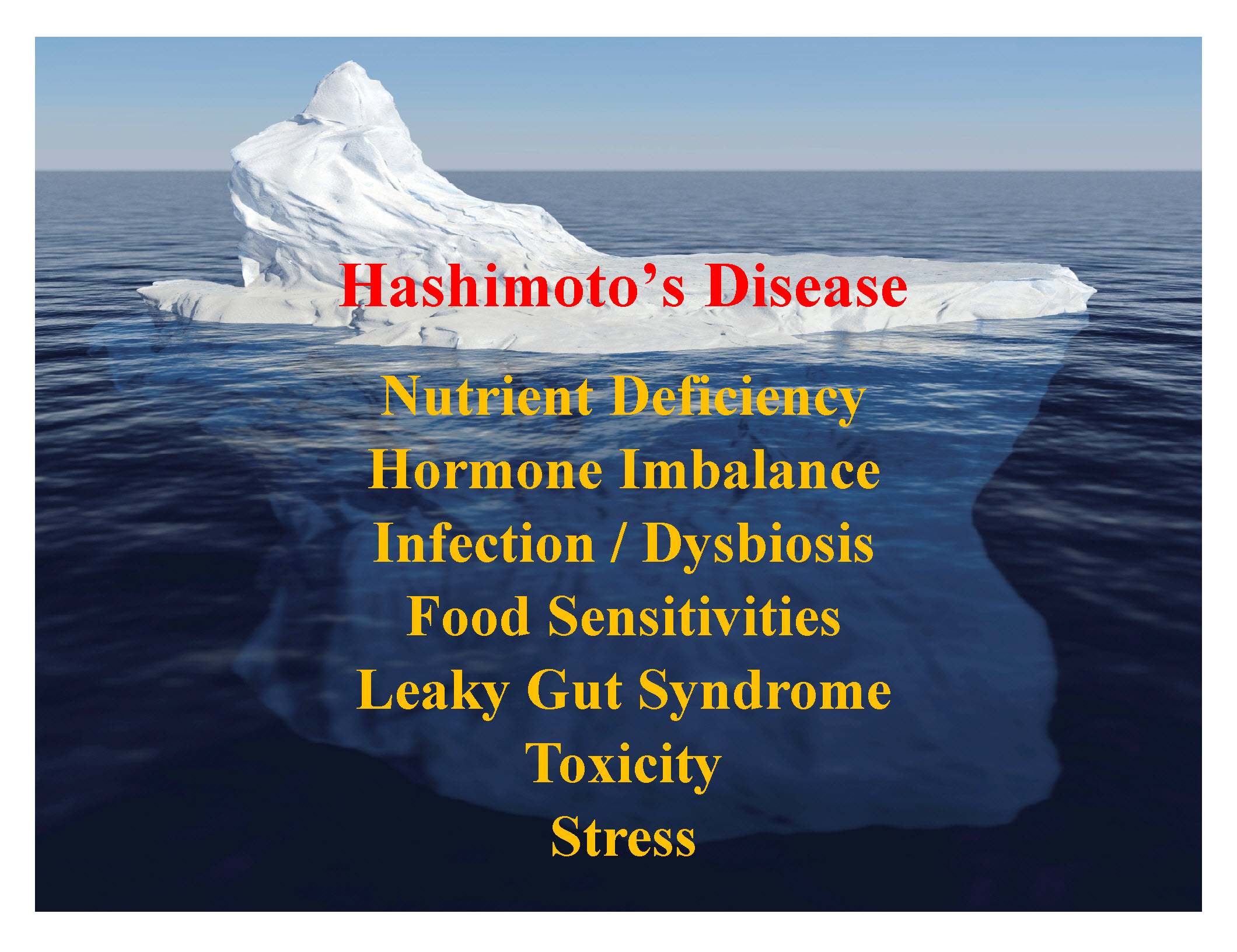If all you do for your Hashimoto’s thyroiditis is take thyroid hormone replacement, you need to know that everything is not fine. Hashimoto's is an alarm that your body is under attack - and a prescription is not the answer.
Hashimoto's thyroiditis, like other autoimmune diseases, results from your immune system attacking you. In the case of Hashimoto's, the thyroid gland is the target of your "misguided" immune system. This attack can spread to other tissues, including the brain. Ignore it at your own peril.
This subject should be of interest to anyone who values his or her health. Autoimmunity is the recognized number 3 cause of morbidity and mortality (getting sick and dying). In reality, when cardiovascular disease is acknowledged to result, in part, from the immune system damaging blood vessels, autoimmune disease becomes the number 1 cause of morbidity and mortality.
Loss of tolerance is an important initiating factor in the development of autoimmunity. In a healthy state, the immune system attacks foreign invaders like bacteria but knows not to attack your own tissue. This is called tolerance. Immune cells monitor and evaluate substances they come in contact with. Foreign substances like viruses and bacteria are identified and attacked. Your own tissues are recognized as friendly and left alone. Something causes the immune system to begin to recognize your own tissues as something foreign. For example, certain food components and Xenobiotics (foreign chemicals) bind to your cells, altering the structure. Your immune system "sees" this new structure for the first time and doesn't find it in the database of recognized friendly tissues (you). So, it goes on the attack.
Once the immune system loses tolerance for one tissue – like the thyroid in the case of Hashimoto’s – it is more likely to lose tolerance for other tissues as well. One of these tissues is the brain. Thyroid peroxidase antibodies, involved in Hashimoto’s thyroiditis, can cross-react with the cerebellum. This can manifest in a multitude of signs and symptoms.
Dementia is one possible outcome of an autoimmune attack on the brain. A study published in 2016, entitled Associations between specific autoimmune diseases and subsequent dementia: retrospective record-linkage cohort study, UK evaluated 1,833,827 people with autoimmune diseases. This study’s findings included: “There are suggestions that Alzheimer's disease (AD) may have an autoimmune component, and that autoimmune and inflammatory mechanisms may play a role in the development of dementia…Of 25 autoimmune diseases studied, 18 showed significant positive associations with dementia…”
Low thyroid hormone levels can be compensated for by thyroid hormone replacement such as Synthroid. To my knowledge, the conventional approach to treating Hashimoto's begins and ends with a prescription. Restorng low thyroid hormones to normal is good. However, this alone is totally inadequate. As long as the immune system recognizes any body tissue as foreign, damage, dysfunction, and degeneration will ensue.
Causes of Hashimoto’s must be searched for and corrected as much as possible. Hashimoto’s and other autoimmune diseases result from an interplay of genetic predisposition and (more importantly) environmental (modifiable) factors. These environmental factors include gluten and other food sensitivities, leaky gut syndrome, infections, dysbiosis, chemical toxicity, vaccinations, ionizing radiation, nutrient deficiencies, hormone imbalances, and stress. The contribution of each of these vary from case to case.
My goal for patients with Hashimoto’s is to bring the thyroid antibodies into the normal range. Self-destruction should not be tolerated! However, there is a goal beyond getting the immune system to “play nice” with your other systems. Addressing the various causative factors has health benefits beyond improving the autoimmune condition. For example, vitamin D insufficiency appears to be a contributing factor to Hashimoto’s. If vitamin D levels are not optimized, many other health conditions are more likely to manifest. Just a few of these include depression, musculoskeletal pain, and certain cancers.
Don’t settle for the routine standard of care for your Hashimoto’s thyroiditis. As a matter of fact, don’t settle for the standard of care for any condition. Investigate whether there is more that can be done. True health restoration and wellness promotion are possible.


